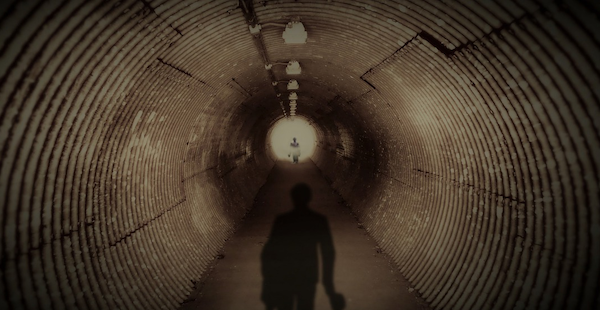
Should Christians Believe Conspiracy Theories?
Some of the most interesting conversations that you can have with people involve conspiracy theories. Just ask the question “What conspiracy theories do you believe?” and prepare for hours of fascinating, in-depth conversation. From aliens to the Bilderberg Group, and from Coronavirus origins to vapor trails to vaccines, conspiracy theories abound. Should Christians believe them?
Because this is a complex question, I’m going to answer this by stating several realities about conspiracy theories, and then going into more depth about each.
Christians are naturally more likely to believe conspiracy theories
Because we are Christians, we like to exercise our minds. This involves a healthy dose of asking questions about the world. We are curious. We believe that our minds were made to think, and this means we tend to be a bit more skeptical about everything. We are less likely to believe something just because we are told its true.
There’s another reason why Christians are more likely to believe conspiracy theories. We believe that in the doctrine of total depravity – that people are sinful, and that evil is constantly at war with God, doing everything it can to propagate itself. Humans really are capable of the most sinister evil imaginable. Nazi Germany and the Khmer Rogue regimes are not freak accidents of civilization, but the direction that everything would go, apart from God’s grace.
For these reasons, we are more likely to think outside the box, to question the accepted narrative, and to believe in conspiracy theories. Not only that, but…
Some conspiracy theories are documented
Technically, conspiracy theories are only ‘theories,’ but some of them are so well documented that they are established, documented facts. Still, they are considered ‘conspiracy theories’ because they are not well known and are quite unpleasant to consider. Examples include the MKUltra Project, Gulf of Tonkin incident, or the original intention of abortion providers for eugenic and racial purposes.
Most conspiracy theories, however, are not positively documented. They are only theories based on facts that don’t seem to fit with the established narrative. Examples include who shot JFK, whether the US knew about Pearl Harbor in advance, and what is happening at Area 51.
Most conspiracy theories can’t be proven
This is why you should be hesitant about accepting them. Most of these theories are only that – theories. For this reason, don’t be too certain about your conspiracy theories. Remember, Christians have already accepted enough on faith (in God’s trustworthy book, the Bible), that we don’t need to accept too much more on lesser evidence. In our society, you are already a conspiracy theorist if you believe in the existence of angels and demons, the supernatural creation of the world, the resurrection of Christ, and the coming return of Christ!
Require a rigorous standard when accepting conspiracy theories
As a student of the ancient Greek language, I’ve often heard that first year Greek students are the most dangerous, and I believe it. Such students think that they know the language, but they don’t know enough to know what they don’t know. This makes it impossible to reason with them, even if you know far more than they do.
This is the danger of accepting conspiracy theories. We often don’t know enough about the topic to really know all the facts, especially which facts are relevant. It can be interesting to theorize, but be careful about which theories you actually accept.
Focusing on conspiracy theories can fill you with fear
On the one hand, conspiracy theories can make us feel temporarily ‘in control’ – they provide simple explanations for unexplainable, chaotic things in the world. They often provide solutions that make sense. This makes the world feel a bit more predictable.
In the long run, they can fill us with fear by making us imagine that someone (other than God) is running the world. The ‘deep state,’ the illuminati, or the New World Order are terrifying groups to think about. Once we start to attribute sinister events to these groups, we find ourselves filled with fear. We forget that God is in control.
The theories may even be true – but when we think about them too much, we burn up valuable brain cells. Our thought would be much better spent considering the truth about God’s sovereignty.
Focusing on conspiracy theories can damage your Christian witness
Like I said already, you are enough of a ‘conspiracy theorist’ just by believing the Bible. Be careful about adding any more to your resume. And when you do add to your resume – be careful not to talk too much about these theories. What reputation do you want to have? Do you want to be ‘the Christian’ or do you want to be ‘the conspiracy theorist’?




What many would consider a conspiracy theory I would say is often the lies of the enemy. For example, in this current situation we know that the enemy is out to destroy the church. He uses his servants to accomplish his purposes. I don’t consider this a conspiracy theory. I consider this the reality of the Bible. MacArthur takes the same view as is seen in his comments. He recognizes that the leaders are set against him because he is standing for God’s Word. Many who oppose this view would say it’s a false conspiracy theory. I consider it to be the truth of Scripture. Thoughts anyone?